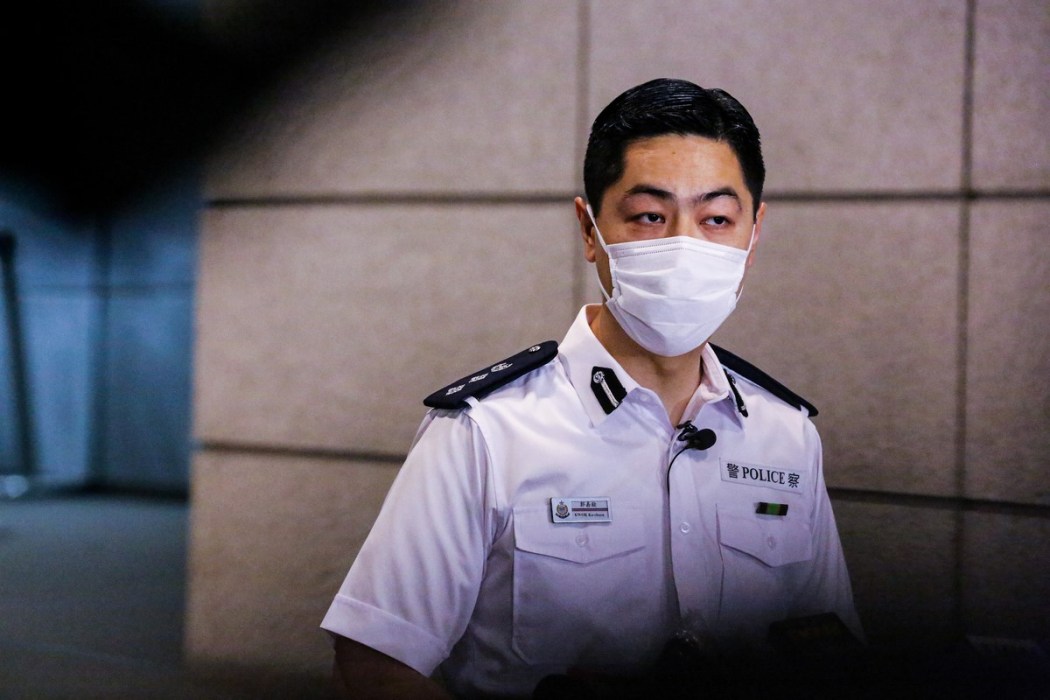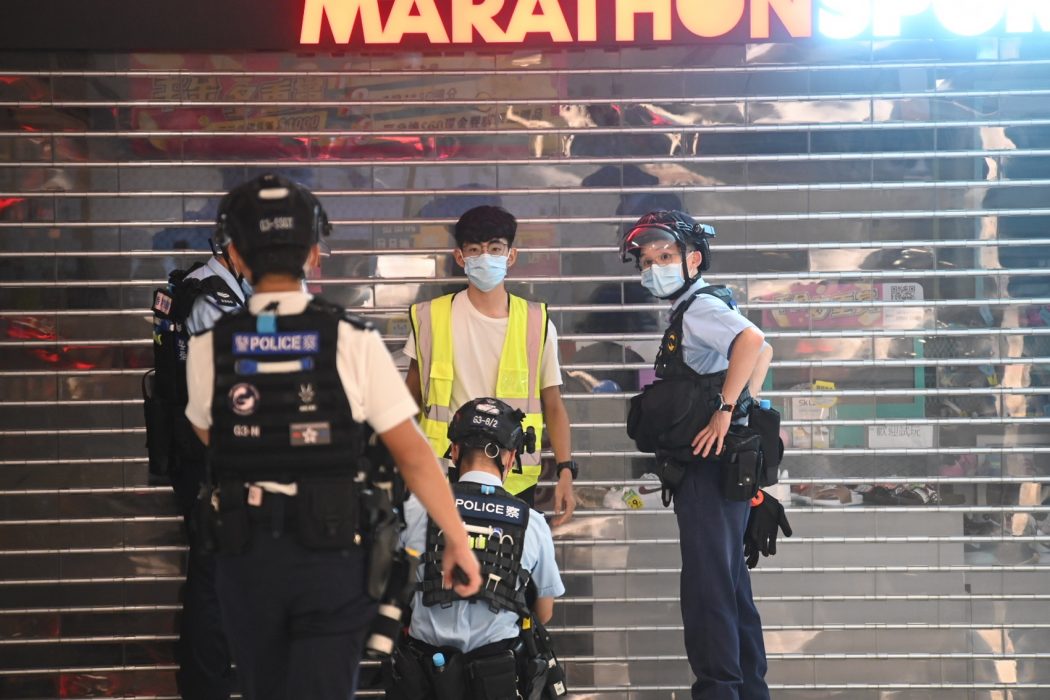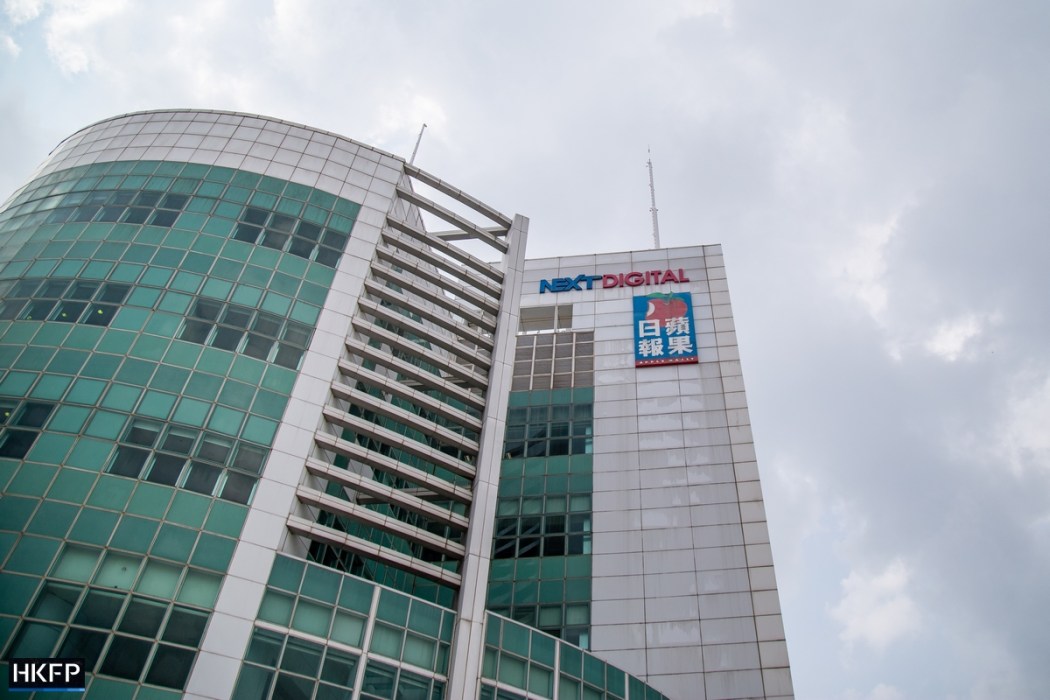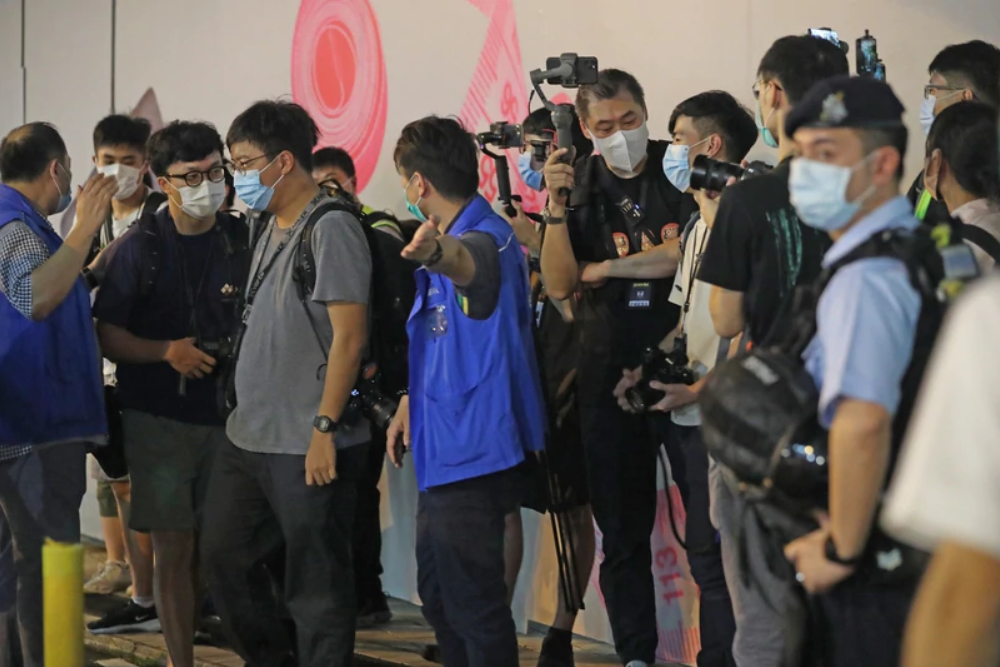Hong Kong police have said their new definition of media representatives will help frontline officers enforce the law. Only select media were briefed on the new policy.
Police Public Relations Branch Chief Superintendent Kenneth Kwok told Commercial Radio on its “On a Clear Day” programme that one of the key objectives of the policy change was to facilitate frontline policing.

With the Police General Orders amendments that came on Tuesday, only people from outlets registered under the Government News and Media Information System (GNMIS) and “internationally recognised and reputable” foreign media are recognised by the force as “media representatives.”
Kwok said the 205 outlets included online media registered under the GNMIS, adding that he thought the system was a legitimate and effective reference for the force.
According to the GNMIS application guidelines, the Information Services Department reserves the right to review a media organisation’s subscription, if their representatives conduct any activity other than news reporting or fail to follow government officers’ instructions.
In addition, the use of foul language, causing disruption to order at media events order and protesting at the venues of government events are considered misconduct and may be subject to review under the new orders.

Kwok informed the Hong Kong Foreign Correspondents’ Club President Jodi Schneider of the decision in a letter and said the force always respects press freedom.
“[The force] maintain close communication with media practitioners for [the] exchange of views and improvement of media-handling arrangement with a view to helping frontline reporters and Police officers carry out their respective duties more smoothly,” he wrote.
“Following the amendment, the definition of ‘media representatives’ will become clearer and more unequivocal, allowing frontline officers to efficiently verify the identity of media representatives so that facilitation can be provided without compromising Police operational efficiency.”
Police allowed only 15 media outlets inside the cordoned-off area on August 10, during a raid on Next Digital headquarters – the office of pro-democracy tabloid Apple Daily – in an operation involving its owner Jimmy Lai, who had allegedly violated the Beijing-enacted national security law. The incident sparked concern over the potential introduction of a press accreditation system.
Kwok told Commercial Radio hosts that he agreed journalists should not be defined by the force and the amendments will not affect student journalists reporting in public places.

Hours after the amendments, police stopped journalists outside the cordoned-off area of a protest site in Tseung Kwan O and asked for their IDs, Apple Daily reported. Citizens had gathered to commemorate 15-year-old student Chan Yin-lam, whose body was found in the sea last year in the midst of citywide pro-democracy protests.
Journalists were reportedly asked to line up against the wall as officers jotted down their personal details, and only some were allowed to enter the “reporting area” after a police screening.
Ming Pao reported that police only invited a few media outlets to the press briefing on Tuesday. The newspaper cited a police source as saying this was to efficiently distribute information, though they will use different means to do so in the future.
The Hong Kong Journalists Association (HKJA) Chair Chris Yeung slammed the selective briefing as “hypocritical, destroying trust and alienating.” He complained the force had neither consulted the association before the announcement nor liaised with them afterwards, and that they had not explained the new policy publicly to the industry.

The HKJA also clarified an unidentified news report which falsely stated that the force had informed the four journalists’ associations of the decision and they had unanimously agreed with it.
In the Facebook statement, the Association wrote that no representative had met or communicated with police after the force agreed it would not set up an accreditation system at an earlier meeting: “The Association absolutely disagrees with any screening mechanism.”
Seven journalism schools issued a joint statement expressing their “gravest reservations” over the police policy. Hong Kong Baptist University, Chinese University of Hong Kong, City University of Hong Kong, Heng Seng University of Hong Kong, Hong Kong Shue Yan University, the University of Hong Kong and Chu Hai College journalism schools requested the police to rescind the policy, which they called “ill-advised” and “unilateral.”
“In our view, the police have every right to take action against anyone engaging in illegal activities; however, this proposed policy is in effect restricting the freedom of reporting. We are concerned that the new policy would amount to giving clear instructions to officers to disperse non-mainstream journalists who have done no wrong and are only exercising their right to gather information.”

“We strongly urge the police to rescind the proposal and call on the Hong Kong SAR Government to halt the proposal from becoming policy in view of the damage to freedom of the press in Hong Kong by this unilateral decision on the part of the Hong Kong Police Force,” the statement read.
